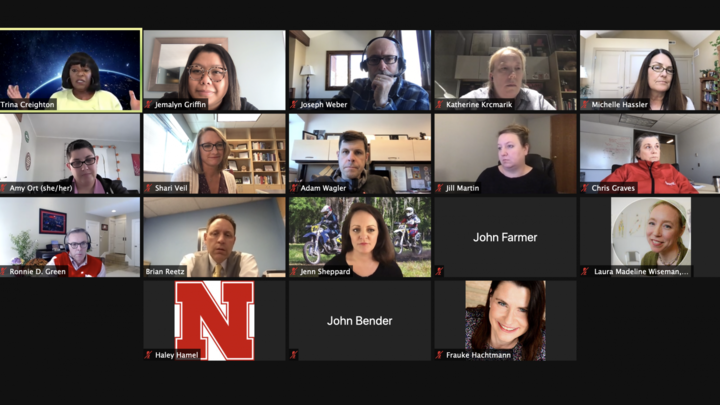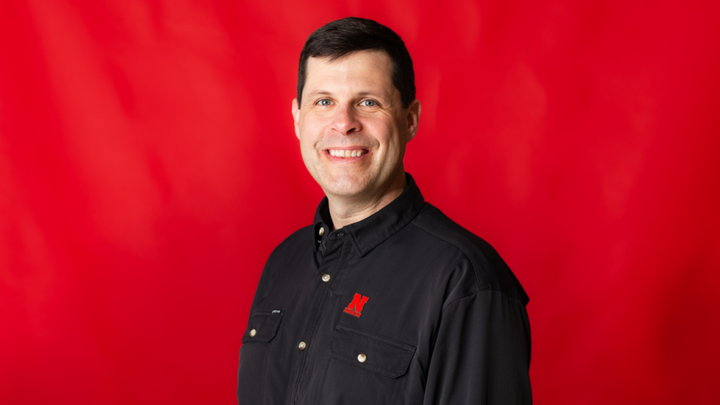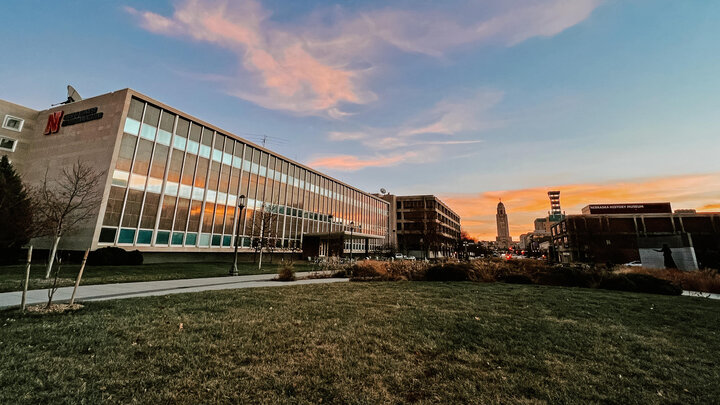Trina Creighton is a broadcast journalist turned college professor. She began her broadcast career at one of the first black-owned and operated community radio stations in the country, KBBG Radio in Waterloo, Iowa. Creighton went on to work at KRNT Radio, WHO-Radio, then WHO-television as an anchor/reporter in Des Moines, Iowa.
She brings years of experience as a television news anchor/reporter/producer, radio announcer and news director. When she and her family moved to Omaha, she kept her position at as an anchor/reporter at an NBC affiliate. Then in 2001, Creighton came to the College of Journalism and Mass Communications to teach broadcasting courses.
She has been teaching broadcast performance courses for almost 20 years, but her main focus is teaching 200-250 students a semester about social justice and her courses Social Justice, Human Rights and the Media and Race, Gender and the Media.
In 2019, Creighton was asked to take on a leadership role as part of UNL’s N150 initiatives. The university also named her one of six Faculty Diversity and Inclusion Fellows. Working on a variety of university committees focused on improving the racial climate is what first renewed Creighton’s passion for working on diversity issues across campus.
At the start of every class, Creighton plays a song as students are walking in (or logging onto Zoom), and for the very first class of the semester, it’s always the same song— “Waiting on the World to Change” by John Mayer.
At the end of the song, she asks her new class of students—
“How many of you are waiting on the world to change?”
Her question typically sets off the very first class discussion, and this year was no different. 181 out of 250 students showed up for the optional Zoom session. Creighton was blown away by the students' enthusiasm and willingness to converse over an online platform.
Following the end of the first Zoom class, she received around 30 emails from her students. Some just said they were eager to learn more about current social justice issues while others relayed that she was the first Black professor they’ve ever had.
Creighton isn’t a fan of the word “lecture”, instead she likes to use the word “present”.
“When you come to my class I don't tell you what to think about the information I present to you, I don't tell you how to feel about it,” Creighton said. “That’s where the discussions come in, and then my students make up their own mind about how they absorb the information.”
Most of the time Creighton’s students add to the information she presents, and she learns something too. She knows her students need an outlet and want to talk about racial inequality, they want to know how movements like Black Lives Matter work and how to keep them going.
“I’m just the captain, and I give my captain’s hat to my students throughout the course so that we all learn from each other, and that’s why I call it an educational experience,” Creighton said.
To Creighton, her social justice course is about helping her students see where they can fit in to make a better society and she feels so fulfilled in her teaching role when she hears them talking about being better citizens.
Now Creighton is taking her tactics and applying them to the CoJMC faculty space. After the murder of George Floyd, she felt like she became a new person. Growing up she was always taught that it wasn’t her place to talk about race with white people, but after watching something so tragic and horrendous she knew she could no longer “stay in her place”.
She reached out to former interim Dean Amy Struthers and Dean Shari Veil about facilitating a conversation about race with her colleagues. It was a conversation that hadn’t taken place in her 19 years of being at the college and it was time.
Struthers and Veil wholeheartedly agreed and the first book club among CoJMC faculty and staff took place a few weeks later. The group’s first discussion was over the book “White Fragility: Why It’s So Hard for White People to Talk About Racism” by Robin DiAngelo.
The first round of book club was such a success that Creighton has already chosen the next book for the group, “How to Be an Antiracist” by Ibram X. Kendi.
“The murder of George Floyd is not only is changing the world, it changed me,” Creighton said. “I don't know if I would be speaking up like I am now, or taking a leadership role without this movement.”
More than ever, Creighton is asking her students and colleagues to follow the advice of the late John Lewis—If you see something, say something. She believes people are starting to see that they have more to give than they realize and that brings her hope.




